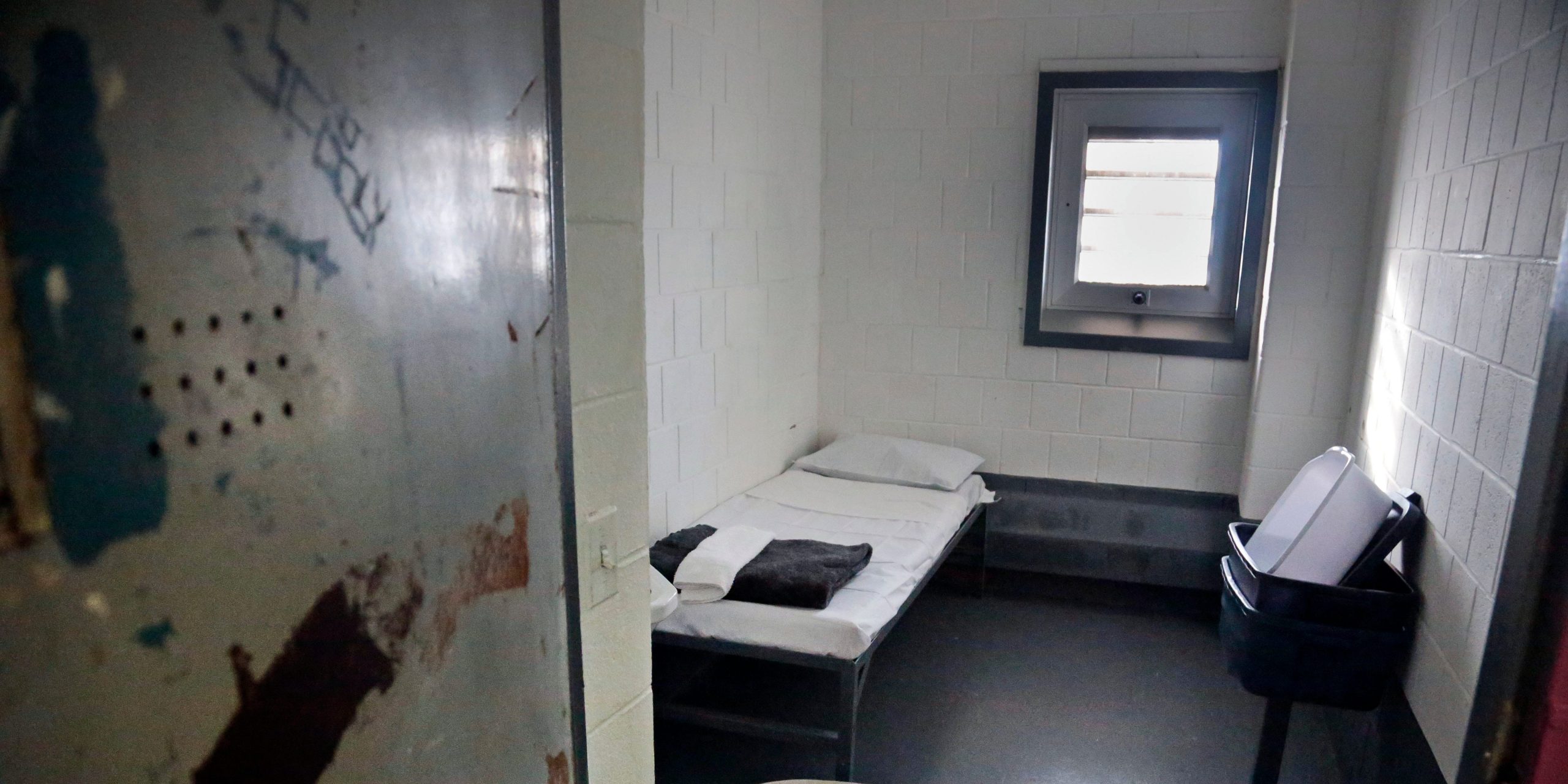
AP Photo/Bebeto Matthews, File
- After a years-long fight, prison reform activists won a significant victory Wednesday.
- Gov. Andrew Cuomo signed the HALT Act, which ends long-term solitary confinement in the state.
- The bill will also bar the use of isolation for multiple vulnerable populations.
- Visit Insider's homepage for more stories.
New York joined a growing list of states Wednesday when Gov. Andrew Cuomo signed legislation that will end long-term solitary confinement in prisons and jails, after a years-long battle for reform in the state.
The HALT Solitary Confinement Act most notably puts a 15-day consecutive limit on how long someone can be kept in solitary confinement or nearly all day isolation. The legislation also reduces the number of infractions that can lead to a person being placed in solitary confinement and bars the use of solitary confinement for multiple vulnerable populations, including pregnant women, people with disabilities, individuals with serious mental illness, and people under 22 or over 54.
Prison reform activists have long been working toward abolishing solitary confinement, also known as punitive segregation. Multiple studies suggest a link between long-term isolation and an increased risk of self-harm and suicide. Research also shows solitary confinement often leads to mental illness and higher rates of death after release, according to The New York Times.
"It didn't take me long to start seeing things that weren't in my cell, to start having a conversation with nobody there," Victor Pate, a former prisoner who spent more than two years in isolation during his 15 years in the system, told The Times. "You never get over that. I'm not well by a long shot."
Advocates of the law have also been critical of the seeming racial inequalities rampant in the use of solitary confinement. According to The Times, Black and Latino people make up nearly 70% of New York's prison population, but represent more than 80% of those in solitary confinement.
A statewide campaign to end long-term use of the practice began more than eight years ago. Incremental measures, including improved isolation conditions have been passed in the meantime, but a similar measure to the HALT Act failed in 2019 after union pushback and threat of a veto from Cuomo.
A Democratic super majority in the legislature following last year's elections helped the bill find success this time around.
Cuomo wrote that "amendments are necessary" in his approval of the law, according to The Times. Such changes are needed to protect people who live and work in facilities, Cuomo said, and would include addressing "all possible circumstances" in which violent people incarcerated may need to be separated from the larger population.
Corrections officers and unions maintain that solitary confinement is a necessary tool to punish troublesome prisoners and say the new legislation puts officers at risk.
"There is nothing humane about subjecting our brave men and women to brutal assaults that send them to the hospital every week," Benny Boscio Jr., president of New York City's Correction Officers' Benevolent Association, told The Times.
But some research suggests that the use of isolation is not an effective way to curb violence in prison settings.
In recent years, the state has been home to some alarming examples of the negative effects of solitary confinement, including the death of Layleen Polanco, a transgender woman who died of a seizure while in isolation, and the suicide of Kalief Browder, a teenager accused of stealing a backpack who committed suicide after awaiting trial for three years on Rikers Island.
The legislation kicks into effect next March.